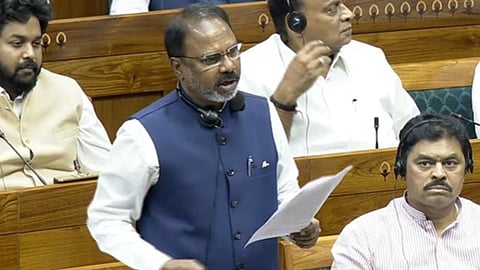

VIJAYAWADA: While extending support to the Waqf (Amendment) Bill in the Lok Sabha on Wednesday, the TDP, a key ally of the BJP, urged the Union government to consider granting states flexibility in determining the composition of Waqf boards.
Participating in the debate on the Waqf (Amendment) Bill, TDP MP Tenneti Krishna Prasad stated that, in addition to advocating for the bill’s referral to the Joint Parliamentary Committee (JPC) for broader consensus, the TDP proposed three amendments to the Act to safeguard Muslim interests.
Observing that the majority of Muslim minorities continue to face economic, educational, and social hardships, he noted that nearly 31% of the urban Muslim population remains below the poverty line.
Despite comprising 14% of the population, Muslims hold only 4 to 5% of government jobs, emphasising the need to prioritise their welfare, according to the TDP MP. When drafting rules for the Act, the TDP MP urged the Centre to consider granting states flexibility in determining Waqf board compositions, particularly to benefit Muslim women, youth, and marginalised communities.
He stated that despite the estimated value of Waqf board properties across the nation being around Rs 1.2 lakh crore, these properties have been underutilised due to administrative inefficiency and mismanagement. The TDP firmly believes that these resources should particularly benefit women, youth, and the downtrodden, while also addressing the welfare and upliftment of Muslims.
The YSRCP has strongly opposed the Waqf Bill, despite its referral to the Joint Parliamentary Committee (JPC), citing serious constitutional violations and disregard for the concerns raised by the Muslim community.
YSRCP MP PV Mithun Reddy highlighted that several prominent Muslim organisations, including the All India Muslim Personal Law Board, Jamiat Ulama-i-Hind, and Jamaat-e-Islami Hind, have raised strong objections to the bill. He noted that his party had submitted detailed objections before the JPC, but unfortunately, most of these concerns were not adequately addressed.
The YSRCP MP emphasised that in a country where nearly 14.6% of the population, approximately 20 crore people, belong to the Muslim community, their voice must be taken seriously. He stated that the bill is unconstitutional, as it violates Articles 13, 14, 25, and 26 of the Indian Constitution.